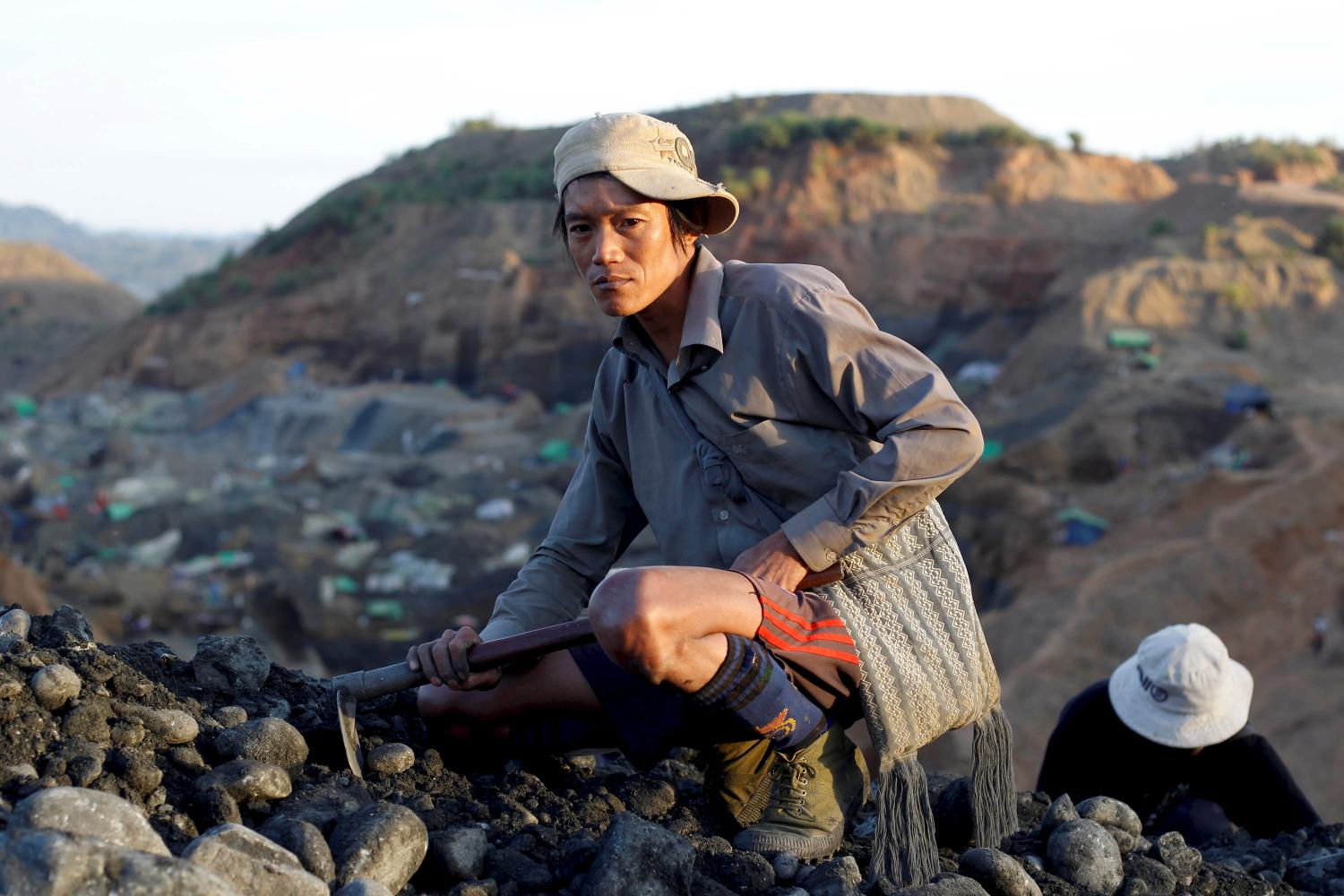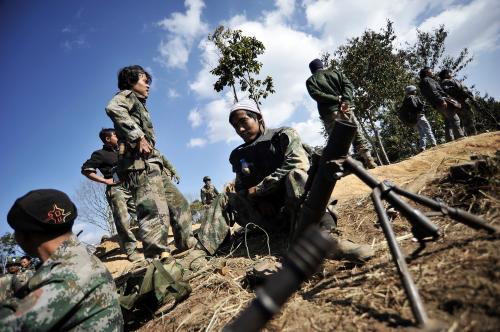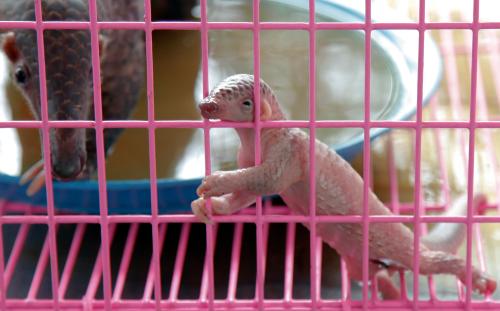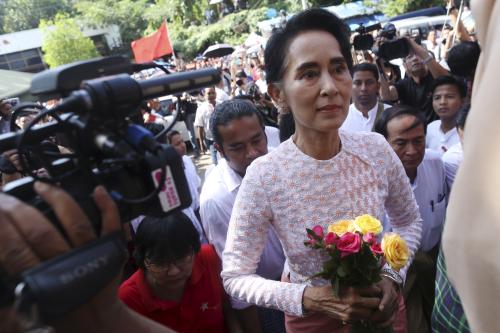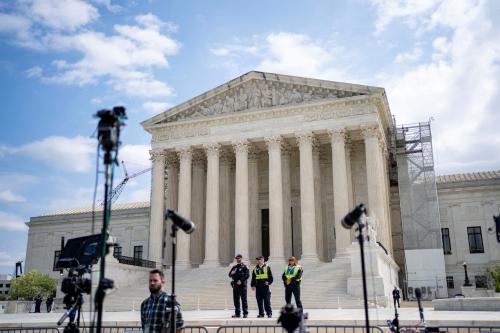In “Myanmar Maneuvers,” a detailed report published by the United Nations University Centre for Policy Research’s Crime-Conflict Nexus Series in April 2017, Vanda Felbab-Brown assesses complex interactions among illegal economies, conflict, peace, and political transitions in Myanmar since the 1990s. She analyzes the evolution of the illegal economies in drugs, logging, wildlife trafficking, and gems and minerals as well as land grabbing and crony capitalism, showing how they shaped political transitions and how political evolution and changes shaped them. She also examines the impact of geopolitics and the regional environment, particularly the role of China, both in shaping domestic political developments in Myanmar and the country’s illicit economies.
For decades, Burma has been one of the world’s epicenters of opiate and methamphetamine production. An early 1990s laissez-faire policy of allowing the insurgencies in designated semi-autonomous regions to trade any products – including drugs, timber, jade, and wildlife – enabled conflict to subside. The incorporation of key drug traffickers and their assets into the state structures significantly strengthened the state and the military regime. Under pressure, including from China, opium poppy cultivation was suppressed in the late 1990s and early 2000s, and although local populations suffered major economic deprivation, the ceasefires lasted.
Since the middle of the 2000s, however, the ceasefires have started to break down, and violent conflict has escalated. In the spring of 2017, armed conflict in Myanmar is probably at its most intense at any time since the early 1990s. Among the reasons is the effort of the previous Myanmar government and military since 2008, as well as powerful Bamar and Chinese businessmen and powerbrokers (many linked to the military and military business conglomerates), to restructure the 1990s economic underpinnings of the ceasefires so their economic profits increase. Meanwhile, however, illegal and unregulated resource economies, including the drug trade, logging, mining, and wildlife trafficking, have thrived and devastate Burma’s ecosystems, even as the plunder-underpinned peace has slid into war again.
In 2011, the Myanmar military embarked on political and economic liberalization that, though a miscalculation of the military, culminated in the election of the Aung Sang Suu Kyi government in November 2015. However, the military has retained significant formal and informal power. Indeed, despite the military’s electoral miscalculation, the entire transition had been at the discretion of the junta. Illicit economies played an integral part of the transition process, being a crucial element of the golden parachute that the junta awarded itself. Moreover, with its continuing lock on constitutional power, the military regime also guaranteed itself a sufficient budget. Many reforms that took place, including those directed at illicit economies, such as the embrace of greater transparency measures in mining, greater enforcement in logging, and the significant weakening the power of the cronies, were still at the direction of the military.
Any political rivals of the military, including the new post-March 2016 government of Aung Sang Suu Kyi, continue to be significantly limited in how much they can challenge the military or the illicit economies and organized crime embraced by the military. The military’s continuing power and the intermeshing of the state and illicit economies have also limited Suu Kyi’s scope of maneuver toward the illicit economies. Significantly, the internal political liberalization and the rise of many new constituencies and political entrepreneurs have also constrained her scope of maneuver vis-à-vis the illicit economies/organized crime nexus. Her government has undertaken some steps toward limiting the pernicious effects of Myanmar’s illegal and resource economies, such as in the suspension of mining licenses and in other efforts toward greater transparency. Yet the effects of such moves so far have been highly limited.
Furthermore, the regional geopolitics and the influence and direct role of China in Myanmar’s illicit economies further constrain Suu Kyi’s space for maneuver. China’s geopolitical positioning and internal political and development policies critically affect both its policies in and towards Myanmar and Myanmar’s policies toward illicit economies. Thus some illegal economies and organized crime in Myanmar, at least until they explode in highly controversial, contentious, and visible confrontations, serve Beijing’s and local Chinese interests. A decision in Nyipyidaw to tackle them will be of limited effectiveness unless Beijing and local Chinese government actors are also on board; worse yet, it risks a direct geopolitical confrontation with them.
In short, going after crime and illicit economies needs to be a tool for increasing the power of a democratic and accountable government, and not inadvertently for weakening it. If going after organized crime and actors involved in illicit economies only weakens the new democratically-elected government, either because targeted rivals mobilize and subvert it or because overall economic growth of the country significantly slows down, both the anti-crime project and the larger political democratization project will be unsustainable.
Felbab-Brown provides the following detailed recommendations:
- Reinforce political pluralization and accountability through a sequential peel-off political approach rather than a technocratic approach;
- Reinforce the peace process with careful sequential human-security-based moves against illicit economies, prioritizing the least politically difficult ones; and
- Counter Myanmar’s illegal wildlife trade as a priority demonstration effect
This is part of a UNU-CPR Series on the Crime-Conflict Nexus. To access the full series, please click here.
This material has been funded by UK aid from the UK government; however the views expressed do not necessarily reflect the UK government’s official policies.

